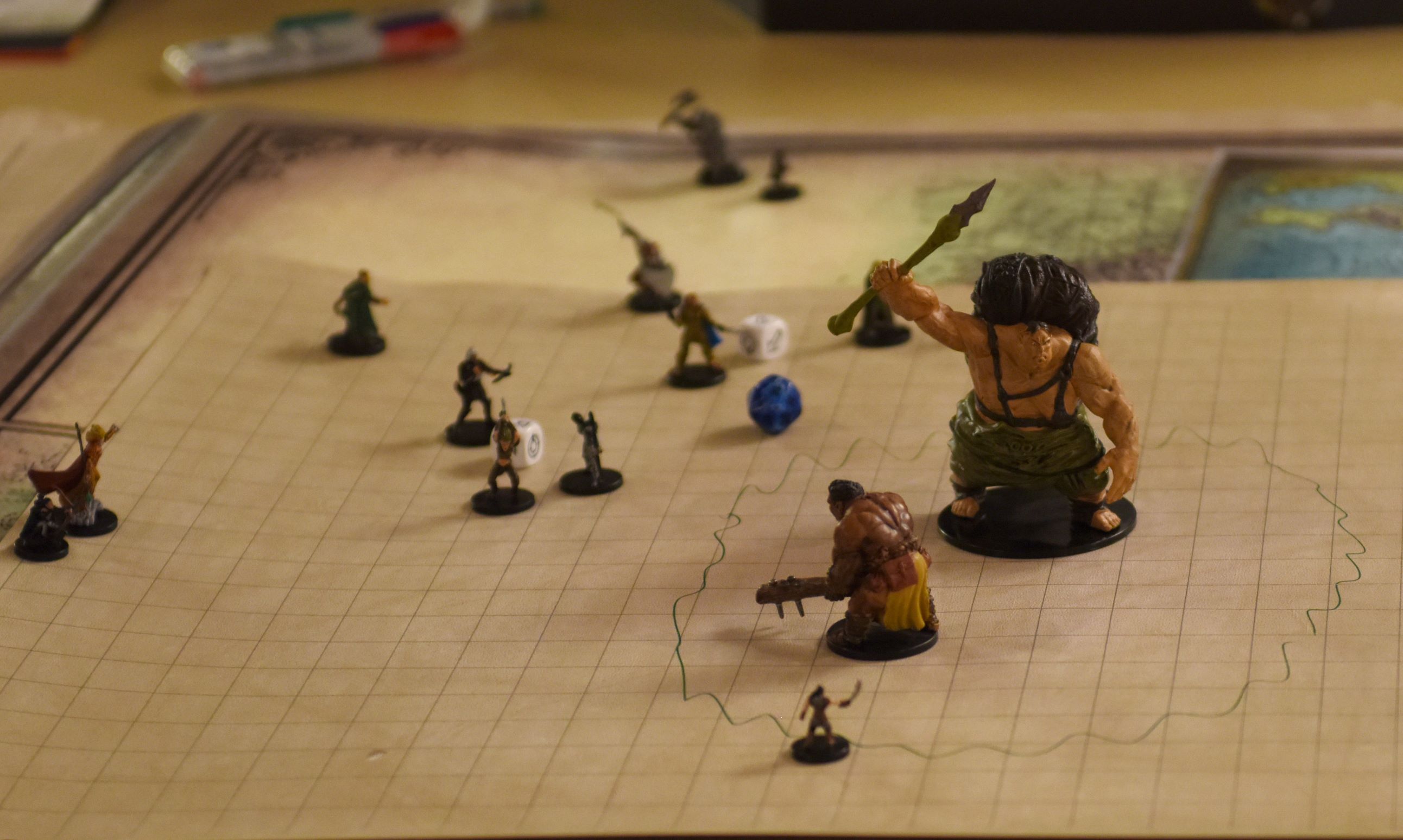Being a new GM is obviously fraught with difficulties. Veteran GMs in the player-seat can be invaluable in helping the next gamemaster learn the ropes. Today we look at how to best support that new GM from the player side of the table.
Dear DovahQueen: I GM a lot, but am trying to step back and let others give it a try. How do I encourage my fellow players to look to the GM for rules calls, instead of me? How do I encourage the GM to make calls instead of looking to me for answers? (I don’t mind answering, but it feels like I’m undermining…) —Still in the Hotseat
Dear Hotseat: This was a hard problem with me for a long time. I think that anyone who has GM’d for a long time has probably felt this way. On one hand, yeah, you don’t wanna do anything to diminish the impetus of the new game-master. But on the other hand, you do have valuable insights that can make their life easier and their game better. I think what’s important is to understand what the new GM wants from you. Everyone is different; some fledglings would like to have the constant feedback. Others would not.
One thing you could start with is simply asking them. “Hey, I’ve been GMing for a while. Would you like me to help you arbitrate some of the rules? What can I do to help you out?” Some folks are pretty unsure of themselves and their role as the GM. A little boost could go a long way, and they could really appreciate it. Maybe even just knowing that you’re there if they need you could help. If they would like a little help, work out a way to communicate that with each other. Have a rulebook on hand and kinda just have the page ready to show if you’re able to predict the need. Sure, you could just tell them the rule, but I think that they’ll learn a little better if you can help them get used to interpreting it from print. That’s the goal: for them to git gud at finding and understanding the rules themselves. If you’re too good of a crutch, and they rely on you too much, they may never leave the nest.
They might not actually need help as much as just they just need confidence. I truly believe that confidence and baby-sitting-ability are two of the most important things for a GM to have. One thing that *I* consider a mistake and see a lot of GM’s do is care about the rules. Now, I mean, sure. We have rulebooks for a reason, and the game won’t work well without them. I get that. But also, the game doesn’t work very well if we derail a cool or immersive moment to figure out the specifics of whether the feat does or does not trigger in this climate. It’s important for a GM to understand when to just throw the book out and when to open it up. In that regard, I’d say try to encourage the GM to be more comfortable getting the rules wrong in favor of making a call to keep the pace going. A good friend of mine likes to say, “Its just advanced board games. Who really cares; we’re just here to have fun.”
For the other players, you’re just gonna have to pick and choose when you wanna help them with calls. If they’re trying to figure out their next turn, and the GM is busy with another player, I don’t think you’d be undermining anyone to help them find the rule they’re looking for. Again, I think that it’s important to show the rules and help interpret them so that your friends get better at doing so themselves. If it’s a rules question in the middle of someone’s turn, I’d simply smile politely and remind everyone that “Hey, I’m not the GM. You’re gonna have to ask ___ about that.” With enough reminders, folks will start to get used to asking stuff of the new GM instead of you. Unless, of course, they’ve asked you to help them out with the arbitration. Always default on what they’ve asked of you if you can.
As a veteran GM, it’s not actually, but kinda is, your job to help newer GMs from your group grow and get better at running the table. Knowing when to speak up and when to just go with it is going to be crucial to helping them stay confident and run well. Ask them how much help, if any, they’d like, and try to be cognizant of their wishes as you aid. In situations where you’re really not sure if you should speak up or not, I’d default on not. There’s no harm in letting someone make a mistake because they can always learn from it. Lessons earned this way tend to ‘stick’ a bit better anyway.
Or just have them sleep with the rulebook under their pillow. I hear that’s how osmosis works.
You can request RPG advice by sending an email to deardovahqueen@gmail.com or by message on Facebook.







